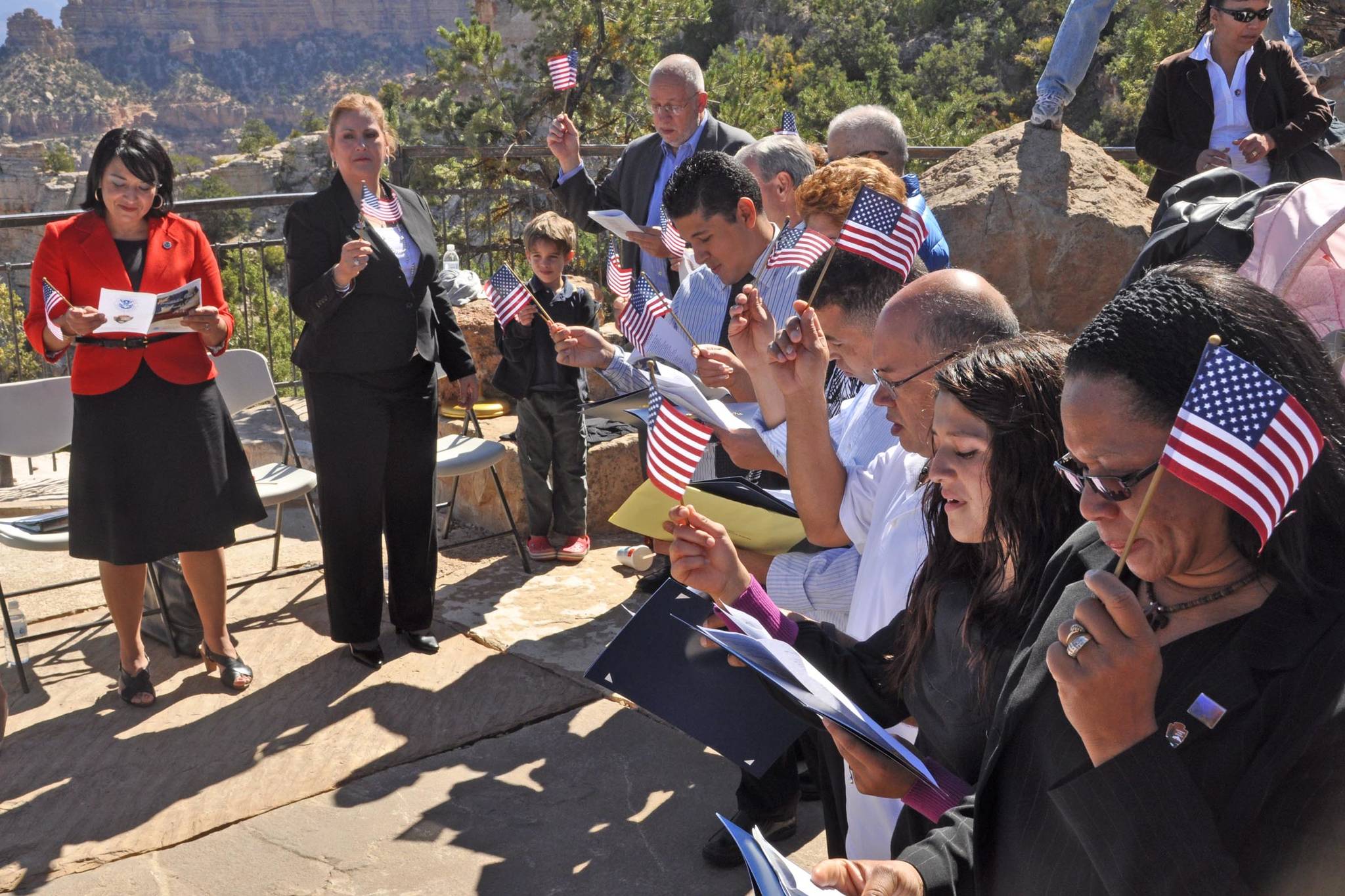While the 2019 U.S. Department of Homeland Security (DHS) spending bill contains funding for a contentious U.S.-Mexico border wall, it also includes legislation that would clear hurdles for high-skilled immigrants to attain permanent resident status.
Approved by the House Appropriations Committee in late July, the DHS spending bill included an amendment by Rep. Kevin Yoder (R-Kansas) that would eliminate employment-based, per-country limits on green cards. The current per-country limit for immigrants to receive green cards is capped at 7 percent annually, creating a bottleneck for Indian and Chinese workers who are among the highest rate of employment-based applicants.
The amendment breathes new life into the original legislation called the Fairness for High-Skilled Immigrants Act of 2017, which stalled in Congress after it was introduced in January 2017. Tech companies such as Amazon and Microsoft have championed the act in the past, contending that it would allow U.S. businesses to retain foreign talent.
But residents from smaller nations are reluctant to sing the legislation’s praises. While the provision could help clear the queue of over 306,000 Indian and 67,000 Chinese workers in a backlog by granting green cards on a first-come basis, a D.C.-based Iranian American advocacy group fears that employees from those larger countries would monopolize the system.
On Aug. 22, the National Iranian American Council published an open letter to corporations that have lobbied on behalf of the Fairness for High-Skilled Immigrants Act of 2017, including Amazon and Microsoft, urging them to reconsider their support for the legislation. The letter states that, if passed, the bill “may reduce wait times for persons from large countries like India, but will make it all but impossible for individuals from small, impoverished, or banned countries to become green card holders.”
It also claims that the elimination of a per-country cap could “exacerbate the impact of the Muslim Ban for Iranians” by shifting long green card wait times to Iranians who won’t be able to freely travel between the U.S. and their native country.
“The path to permanent residency and citizenship for talented men and women from underrepresented countries, especially smaller nations in the developing world, is fraught with difficulties. The per-country limits ensure that the aspirations of these individuals are not obscured and our naturalization pool remains diverse,” according to a statemet from Jamal Abdi, President of NIAC Action — the sister organization to the National Iranian American Council. “Congress should not rush through any legislation that significantly reduces or eliminates per-country limits for permanent residency without undertaking basic steps to ensure that Iranians and other nationals that have nearly been locked out of the visa system entirely by the Trump administration are not further disadvantaged by changes ostensibly designed to level the playing field.”
The council urged the corporations to look for other solutions that would not disproportionately impact green card applicants from predominately Muslim countries.
Amazon and Microsoft has not yet responded to requests for comment for this report, but Microsoft President Brad Smith has long publicly supported the elimination of per-country limits on green cards.
In an Oct. 2017 blog post, Smith called for the overhaul of the green card system: “These backlogs have a real impact on our employees and their families. Employees worry about limitations to career changes and job growth that could impact their green card process. Their spouses are often unable to work,” he wrote. “Despite having grown up in the U.S. and attended our schools, their dependent children may be left out if they reach adulthood before their application makes it through the backlog. This kind of uncertainty is not the way to attract the best talent in the world to U.S. companies.”
The green card backlog affects tech employees who come to the region on the H-1B program — a three-year visa for highly skilled workers in specialty jobs — and could wait decades for their applications to be processed.
Lokesh Marenayakanapalya of GC Reforms — an employment-based immigration reform advocacy group — told Seattle Weekly in a February interview that more than 30,000 Indian workers on H-1B visas in Washington state are waiting for their employment-based green cards.
“It is literally [like] being left in a free space with handcuffs on,” Marenayakanapalya said. “It is like putting a bird in the cage.”
mhellmann@seattleweekly.com








